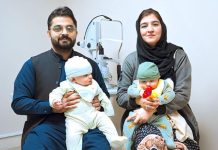PARIS, MAR 08 (DNA) – Women are statistically far more likely to donate a kidney to a partner than receive one, according to a study released Thursday to coincide with World Kidney Dayand International Women’s Day. Based on European data assessed, 36 percent of women donate a kidney to their husband in clinically suitable cases. That compares with just seven percent of clinically suitable men donating a kidney to their spouse, said the study by the International Society of Nephrology (ISN) and the International Federation of Kidney Foundations.
It highlights how women are also liable to suffer from the most serious stages of chronic kidney disease (CKD) as they tend to live longer than male sufferers and take longer to reach a stage requiring a transplant.
“Although it is hard to pinpoint a specific reason for higher numbers of wives being donors than husbands, the evidence suggests women are motivated by reasons such as altruism and the desire to help their family continue to survive,” said Adeera Levin, a Professor of Medicine at Canada’s University of British Colombia.
The study data shows some two thirds of kidney transplant recipients are men although the gender difference was less pronounced for donations by deceased men and women.
Worldwide, the study found 14 percent of women suffer from CKD compared with 12 percent of men.
Although the data showed higher proportions of women live with advanced CKD, “experts believe that systemic failures to detect or manage CKD in women leave women at a higher risk of progression and complications.”
This year’s World Kidney Day is closely focusing on CKD sufferers who are either pregnant or wishing to conceive.
“In women who have had a successful kidney transplant, fertility can be at least partly restored and chances of successful birth increase,” said Dr Giorgina Piccoli of Italy’s University of Torino and the Centre Hospitalier Le Mans, France.
“However, complications in these women remain more common than in the general population, and preconception medical counselling should always be sought,” added Piccoli.
She stressed the “clear need for higher awareness of CKD in pregnancy, to timely identify CKD in pregnancy, and to follow-up women with CKD during and after pregnancy.”
Fiona Loud, Policy Director of Kidney Care UK, received a kidney from her husband 11 years ago, according to the Sun.
She said: “Giving a kidney to a loved one is an incredible gift and last year around a third of all kidney transplants were from living donors.
“Deciding to give a kidney is a very personal and emotional decision so more research is needed in order to understand the reasons why women are more likely to become living donors.











